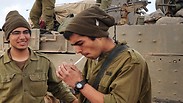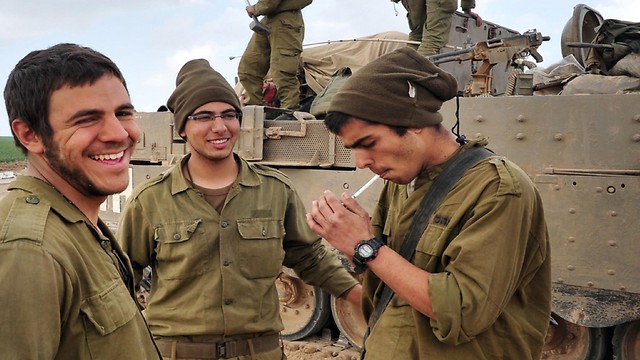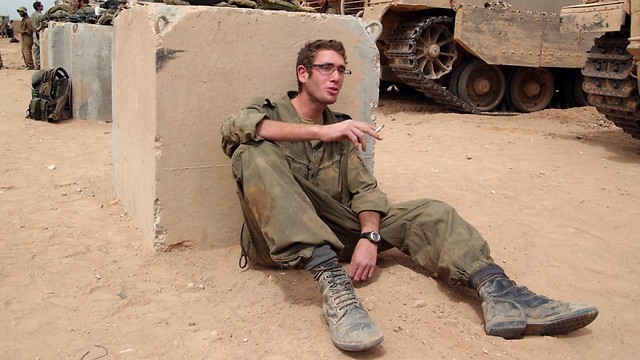

IDF declares war on smoking
New army regulations to enter into force in November ban smoking on 56 bases, set disciplinary measures for smoking in public areas, delineate and limit smoking zones and prohibit commanders to smoke near subordinates; smoking during army service rose by 40%, Medical Corps report says.
IDF Chief of Staff Gadi Eisenkot has approved new measures to combat smoking in the military after new data revealed smoking during army service rose by 40 percent.
Among the measures, which will come into effect in November, are the banning of cigarette sales in 56 bases—including the large Kirya and Tel Hashomer bases in Tel Aviv—a prohibition on smoking in public areas in the bases and a prohibition on commanders smoking near their soldiers.
Smoking areas in bases will also be limited, well-defined and minimized, while it will be prohibited anywhere else.
Tobacco companies will be forbidden to "adopt" army units and cigarettes will no longer be accepted as donations for soldiers. Smoking will be prohibited in "brown" training or operational vehicles, and later on possibly in "white" company cars as well.
The IDF also announced its intention to medically monitor smoking, with every new conscript asked whether they smoke in the induction center.
A new article in the army disciplinary code will enable the enforcement of these new protocols, and a soldier caught smoking will face disciplinary action and punished with a warning, detention or possibly more severe measures, based on the circumstances.
The army will also ramp up preventative measures to combat the phenomenon. For instance, every soldier, either a conscript or career soldier, will be able to partake in smoking rehab activities such as support groups. Anti-smoking instruction videos and classes will be given to soldiers in basic training and command courses, and extensive signage against smoking will be posted in bases.
Th new measures will be reevaluated during the coming quarter, after which the prohibition may be expanded to other major bases, such as the southern region's Tze'elim base.
Following prolonged administrative review, the army's Manpower Directorate decided to adopt recommendations made by the Medical Corps to significantly curtail smoking in the army, citing data showing the prevalence of smoking during army service rose by 40 percent, while more than 80 percent of soldiers reported being exposed to smoking during their service.
The IDF's study shows that 2.5 million different smoking paraphernalia products are sold in military canteens, from cigarette packs to lighters.
"We wouldn't want to see soldiers leaving a class and seeing their commander smoke any more than we would teachers in school. The chief of staff considers smoking to adversely affect soldiers' fitness and capabilities. Soldiers who smoke use up more sick days. According to our data, in 2016, 25 percent of male recruits and 15 percent of female ones stated they smoked. These statistics reflect Ministry of Education ones regarding high school graduates," explained head of the Manpower Directorate's planning division, Brig. Gen. Meirav Kirshner.

















